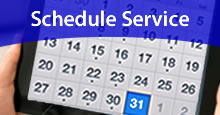Seattle, Wash. (Nov. 5, 2015) – Today, we have more options for getting from one place to another than ever before. Innovations abound, but are we making the most of this progress to build a future where all people can move more freely? Now is the time for fresh thinking on the mobility challenges that continue to exist in our modern society, such as:
How can we increase access to public transportation for the elderly, the disabled, and other underserved communities?
How can we apply new technologies to help speed people to their destinations more efficiently and sustainably?
How can emerging transportation options, like car-sharing services, help foster community?
Today, Toyota and Net Impact announced the Next Generation Mobility Challenge, a new competition to inspire millennials to answer these questions and others by developing solutions to meet critical mobility needs in local communities and around the world.
Net Impact is a leading nonprofit that is empowering a new generation to use their careers to drive transformational change in the workplace and the world. Toyota is executing the challenge through Toyota Motor North America and the Toyota Mobility Foundation (TMF), which was created by Toyota in 2014 to help more people go more places – safely, easily and sustainably – so they can live better lives no matter where they are.
“Our partnership with Net Impact on the Challenge draws on the ingenuity of millennials, a generation that shares our passion for contributing to society,” said Latondra Newton, Chief Social Innovation Officer, Toyota and Chief Program Officer, Toyota Mobility Foundation. "The Challenge reflects our approach of combining Toyota’s know-how with the expertise of others, so that working together can lead to something greater than going at it alone. We can’t wait to see the results of the Challenge – from the mobility issues the students take on to the innovative solutions they dream up.”
“Most of us think of transportation as a means to an end, but the way we move from one place to another has profound effects on natural resources, community, and personal well-being,” said Liz Maw, Chief Executive Officer, Net Impact. “Our members are excited to work alongside Toyota to imagine the future of mobility and transportation in ways that benefit community, equity, public safety, and the environment.”
Exploring Solutions to Mobility Challenges to Foster Community, Connectivity, and Sustainability
Beginning in Spring 2016, local Net Impact chapters around the country will host the Challenge during half-day events at university campuses. During the events, multidisciplinary teams of students will work together to address a specific mobility issue of their choosing around one of three themes: community, connectivity, and sustainability. Students will develop solutions which could range from creating a wireless network that connects commuters around shared interests to designing kiosks on buses that help non-English speaking riders communicate with the driver.
During the events, local transportation and technology experts from across Toyota in the United States will offer feedback and real-world perspective.
Solutions will be judged based on the clarity of their goals, project design, feasibility, creativity, ability to reach target audience, and social impact. The top team from each event will submit a pitch digitally to Toyota, TMF, and Net Impact judges. Three finalists will meet with Toyota mentors to refine their pitch and produce a short video for final judging. The proposal from the winning team, which will be announced in May 2016, will be considered for a TMF grant and have a chance to incubate their ideas during a Summer internship with Toyota’s mobility innovation partners. The team will also be able to showcase their solution at the 2016 Net Impact Conference.
Following two pilot events at the University of Michigan in Ann Arbor and the University of Washington in Seattle this fall, Net Impact will host the Challenge at 13 other campuses, including:
Northwestern University
University of Texas, Austin
New York University
Babson College
Duke University
Emory University
Johns Hopkins University
University of California, Berkeley
California Polytechnic State University, San Luis Obispo
Georgetown University




